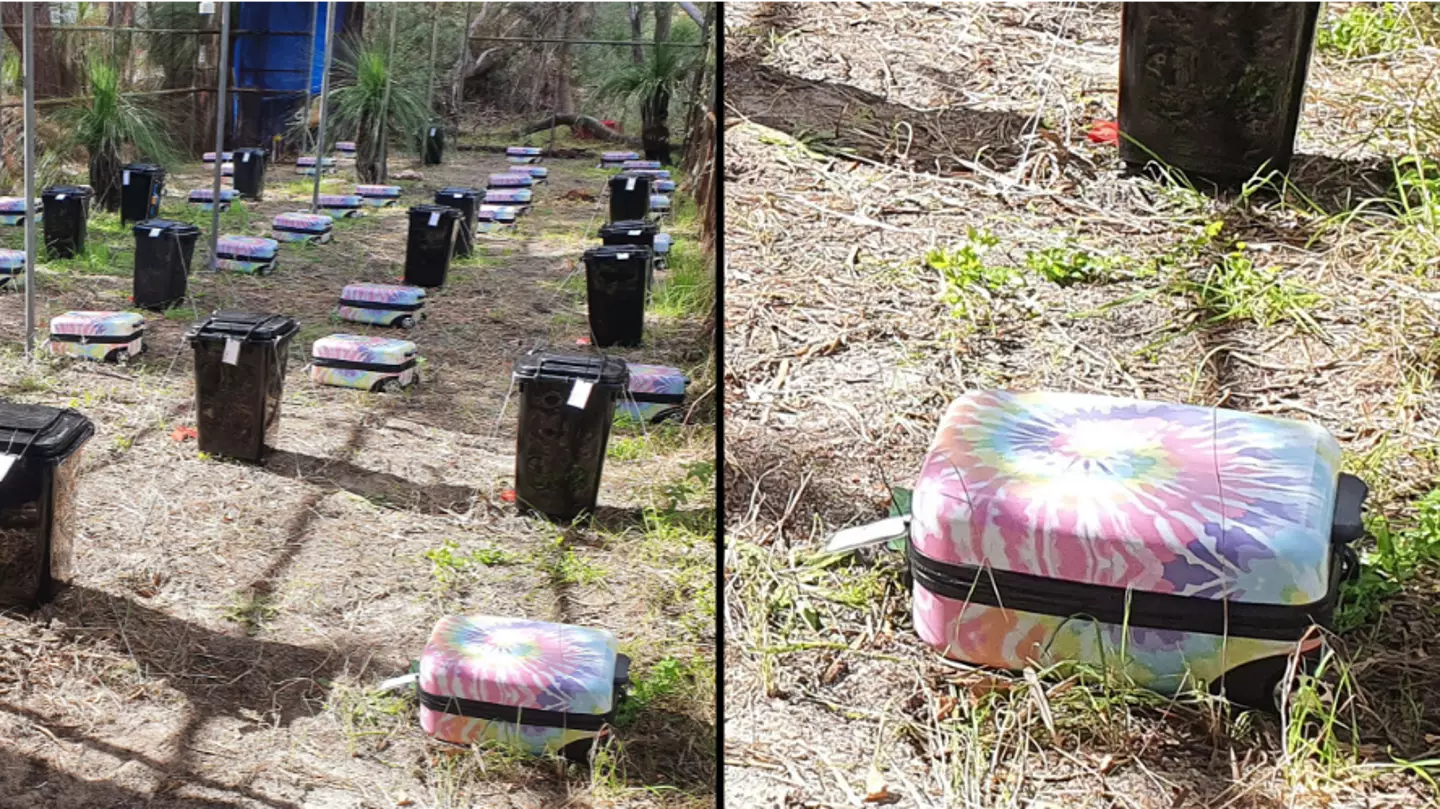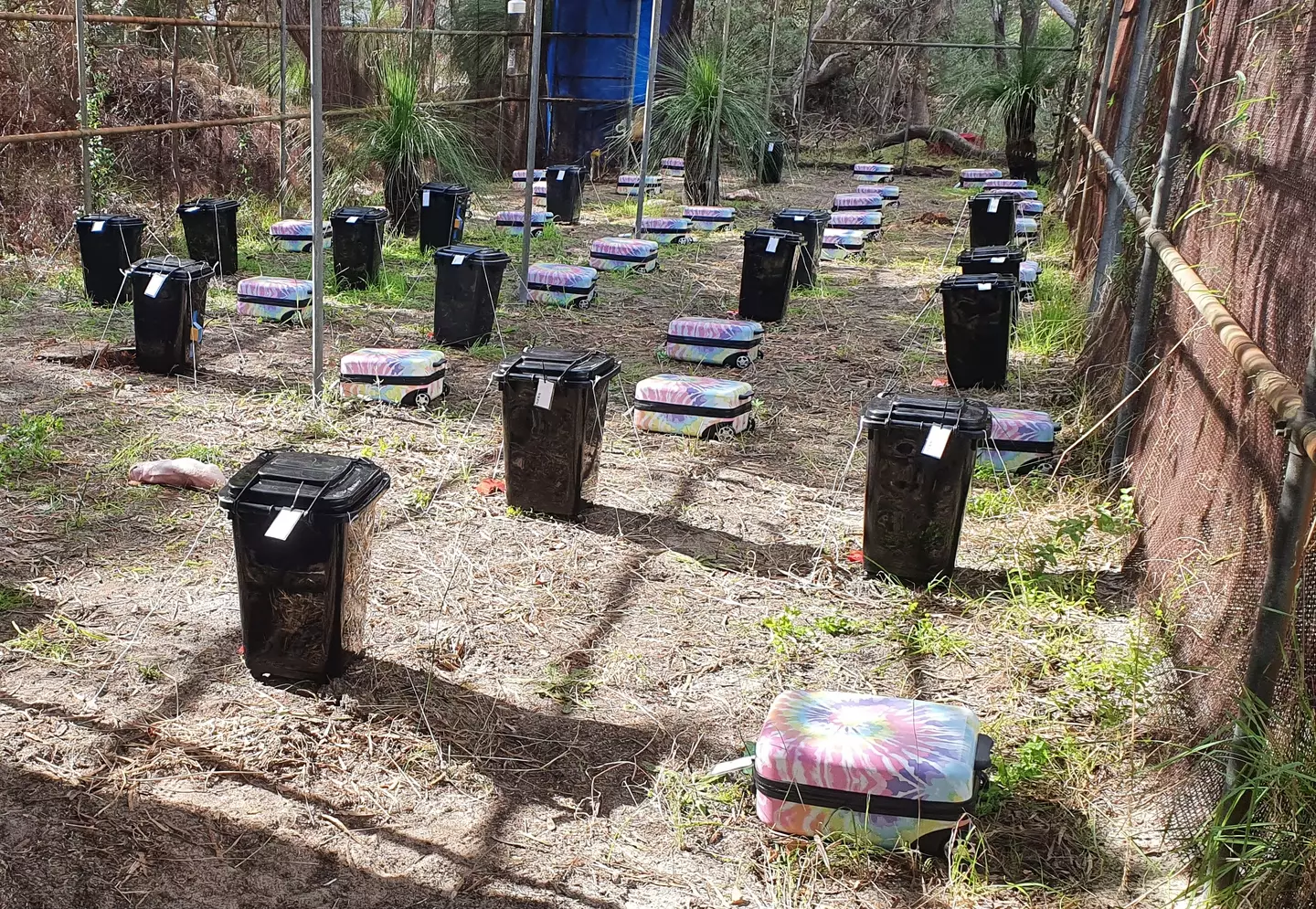
Back in 2022, nearly 70 decomposing bodies were left to rot wrapped inside suitcases and wheelie bins.
But although it sounds crazy, it was for a very important reason – not some sicko’s idea of an art exhibition.
Over in bushland in Western Australia, bodies of stillborn piglets were left out by researchers in one of the world’s largest experiments of its kind.
Advert
Researchers measured the temperature and humidity inside and outside of the case, as well as the insect species and their ages, to analyse the decomposition process of the bodies.
The chemical changes in the bones of the bodies and the microbiological changes were also noted in the study.
Several of the stillborn piglets were also left exposed to the elements to show the difference between those in the suitcases and those outside.

This bizarre-sounding experiment was actually done in the hopes of helping catch killers.
Advert
Paola Magni, Senior Lecturer in Forensic Science, Murdoch University, said every year, deceased bodies and/or body parts are discovered concealed in what is refer to as ‘limited access environments’.
And that includes the likes of suitcases and wheelie bins. Sadly, there are plenty of examples of murderers using these methods to try and cover their tracks.
Dr. Magni explained: "This happens because the perpetrators try to avoid an easy discovery by the authorities and/or because they need something in which they can temporarily store and move the body from place to place: from the primary crime scene where the death event/murder happens, to the secondary crime scene, where the body is left or discovered.”
These ‘limited access environments’ affect the decomposition process of the body and especially the accessibility to insects.

And therefore, the alteration of the decomposition process affects forensic pathologist and forensic entomologists’ ability to estimate the time since death – a crucial bit of data to help determine the timeline of events.
Advert
Dr. Magni said: "Time is crucial in the reconstruction of the events, to pinpoint people, places and motives. A forensic pathologist has a short window of about three days since the death to estimate the time since death, while insects can be present and provide information for days, months and years.
"We are providing the first data to critical analyse bodies found in such environments. Forensic entomologists normally work on bodies left on the ground or buried, the understanding of the succession of the insects in limited access environment provides new information to add to the toolbox of the forensic entomologist."
Featured Image Credit: SWNS